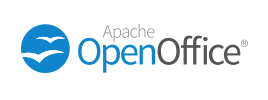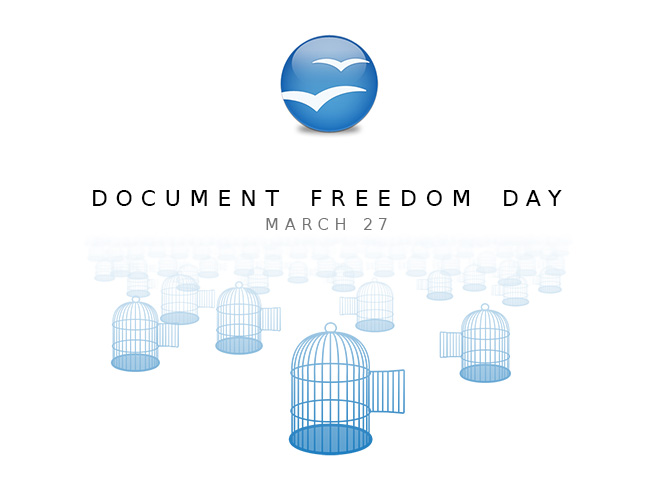What is Document Freedom Day?
¶
Document Freedom Day, the last Wednesday in March, is a global celebration of open standards, especially ones that are used in your documents. At Apache OpenOffice, we're strong supporters of open standards and we're pleased to join in this year's celebration. But we're much more than passive supporters of open standards. We're also active implementers of open standards, and several of our project volunteers serve on standards committees as well.
What is an Open Standard?
¶
There are many definitions of "open standard", some of which are summarized on this Wikipedia page. But the central idea is that an open standard is a standard that 1) is developed in an open, consensus based standardization process, and 2) does not require royalty payments in order to implement.
Why are Open Standards important? ¶
- The use of open standards makes your software less expensive, since the authors of the code do not need to pay royalties. Free software, including open source software, would be nearly impossible to create without open standards.
- Open standards promote widespread adoption and interoperability.
- Open standards encourage a market where vendors compete based on features and quality, rather than rely on vendor lock-in.
- Open standards put you in control of your documents and your data.
Open standards are what the World Wide Web was built upon, and this openness was essential to its success. Tim Berners-Lee explained why was so in a 2007 interview:
It was the standardization around HTML that allowed the web to take off. It was not only the fact that it is standard, but the fact that it’s open and the fact that it is royalty-free.
So what we saw on top of the web was a huge diversity and different business which are built on top of the web given that it is an open platform.
If HTML had not been free, if it had been proprietary technology, then there would have been the business of actually selling HTML and the competing JTML, LTML, MTML products. Because we wouldn’t have had the open platform, we would have had competition for these various different browser platforms, but we wouldn’t have had the web. We wouldn’t have had everything growing on top of it.
So I think it very important that as we move on to new spaces … we must keep the same openness we that had before. We must keep an open internet platform, keep the standards for the presentation languages common and royalty free. So that means, yes, we need standards, because the money, the excitement is not competing over the technology at that level. The excitement is in the businesses and the applications that you built on top of the web platform.
How is Apache OpenOffice involved in Open Standards?¶
We're involved in two ways. First, we're an implementer of several key open standards, including:
- Open Document Format (ODF), the ISO-approved standard for office documents. ODF is the default document format in OpenOffice.
- Scalable Vector Graphics (SVG), the W3C standard for vector graphics.
- Portable Document Format (PDF), the ISO-approved standard for fixed-layout document representations.
- Mathematical Markup Language (MathML), the W3C standard for representing mathematical equations.
Secondly, many of our volunteers are actively involved in the creation and maintenance of open standards, especially at OASIS, where the technical committee for ODF is:
- Oliver Rainer-Wittman is a long-time member of the OASIS ODF Technical Committee (TC), and also participant in ODF Plugfests.
- Dennis Hamilton is a member of the ODF TC and Secretary of the ODF Interoperability and Conformance (OIC) TC, and is active as well in ISO/IEC JTC1 SC34/WG6 where the ISO version of ODF is maintained.
- Rob Weir is Chair of the OASIS ODF TC and a frequent participant in ODF Plugfests.
- Other OpenOffice Committers are members of the OASIS ODF TC, including Regina Henschel, Louis Suárez-Potts, Don Harbison and Michael Stahl.
- Others at Apache are involved in ODF standardization, included Svante Schubert, Committer in the Apache ODF Toolkit Project, who is Chair of the Advanced Document Collaboration Subcommittee, developing enhanced change tracking support for the next version of ODF.
What can You do to help promote open standards? ¶
- Use open standards wherever your application supports them.
- If your favorite application doesn't support open standards like ODF, write to your vendor and request that they add support.
- When you publish or share a document, do so in open formats like ODF or PDF.


